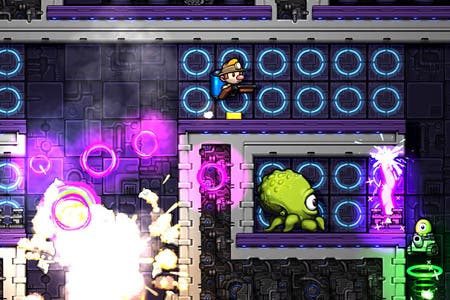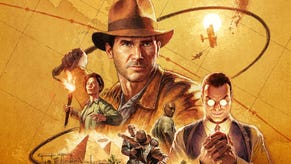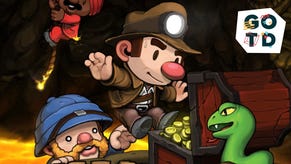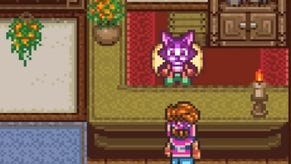Game of the Week: Spelunky
Punk rocks.
It's the second day of Rezzed, our new PC and indie games show in Brighton. Compared to the Eurogamer Expo it's an intimate affair - so far, anyway. But a couple of things about it have been striking.
The first was at our inaugural developer session yesterday, when the crowd-funded indie game Project Zomboid drew a huge audience that rivalled those that turned up to see Borderlands 2 and Peter Molyneux later in the day.
The second was the games that were drawing clusters of people around them on the show floor. Although plenty were enjoying the big games we have (though 2K probably should have brought a build of Borderlands 2 that supported mouse and keyboard play - whoops!), they weren't the games inspiring that sense of connection.
Those were the Hotline Miami, a glorious slice of surrealist crime trash, the first full-scale project from prolific micro-game maverick Cactus; Day Z, the famous mod that has propelled its parent game Arma 2 to a permanent residency at the top of the Steam charts; Natural Selection 2, a full game sequel to the popular Half-Life mod, again funded by paying beta players; Prison Architect, Introversion's dark twist on theme-park strategy that wasn't the game its creators originally set out to make; and the contrasting delights of a couple of one-man-band projects in our Leftfield Collection, Gunpoint and Antichamber.
That's not a surprise in itself - these are the games that people who come to a PC and indie games show are likely to care about, after all. But despite their extreme diversity, they all have a few interesting things in common.
They've all come from unusual sources, or have come about in unusual ways, from pay-to-play betas to the mod scene (which, lest we forget, has birthed several of the biggest games ever). And - whether it's Hotline Miami's brutal instant murder or Antichamber's devious mind-games - they're all uncompromising. Almost mean. They appeal to our dark side - the side that wants to punish and be punished, to face real challenges, to eke out survival and triumph by degrees. They're the games we love to hate us.
Just like our game of the week!
Spelunky
This week's Xbox Live Arcade gem is a brilliant hybrid of roguelike and cheerful retro platform game; it's Dark Souls meets Boulder Dash. Presenting you with a new series of randomly generated caves each time you play - along with a very limited pool of health, and permanent death that dumps you all the way back to the start - it's breathtakingly difficult yet effortlessly playable, packed with slapstick jokes, delicious surprises and cruel traps. It's obscene.
"Spelunky's astonishing creativity and the spectacular depth that opens up as you make progress make it easy to forget that it's also an extremely competent platformer, with tight, poppy controls," wrote Lewis Denby in our review. "Playing feels tactile and physical yet precise and comfortable. It allows you to bounce around the world with ease, and focus on the meat of the game: the joy of discovery, the hilarity of death, the glorious secrets that pour from every crack."
It's the sort of renegade design that sounds like madness on paper but, in the flesh, makes so much sense that you can't stop playing it. It's easy to imagine that Derek Yu's game would never have reached XBLA if the concept hadn't been so emphatically proven by the warmly received freeware PC version back in 2008.
Is gaming's mean streak now thought of as too confrontational, too hostile, for commercial interests to want to back these games? It seems silly; Sony Japan famously dumped Demon's Souls before its international release, and thus passed up on exclusivity for a genuine gaming phenomenon and respectably-sized hit. It might not be the mass market, but there's clearly a very sizeable audience out there for games that really test you, that offer you the opportunity to triumph over impossible odds.
Then again, does it matter? In the wake of Minecraft - whose wicked menace is one of the less reported, but still important reasons for its success - there doesn't seem to be any barrier to the likes of Spelunky or Day Z stalking their way to widespread popular acclaim.
And winning big while simultaneously sticking it to the man suits these games' attitude. It's gaming punk rock. It's probably the most creative and stimulating sphere of the medium right now, and it's the reason we decided to put Rezzed together. And if the next Minecraft isn't on the show floor today, hopefully the next Spelunky is.









